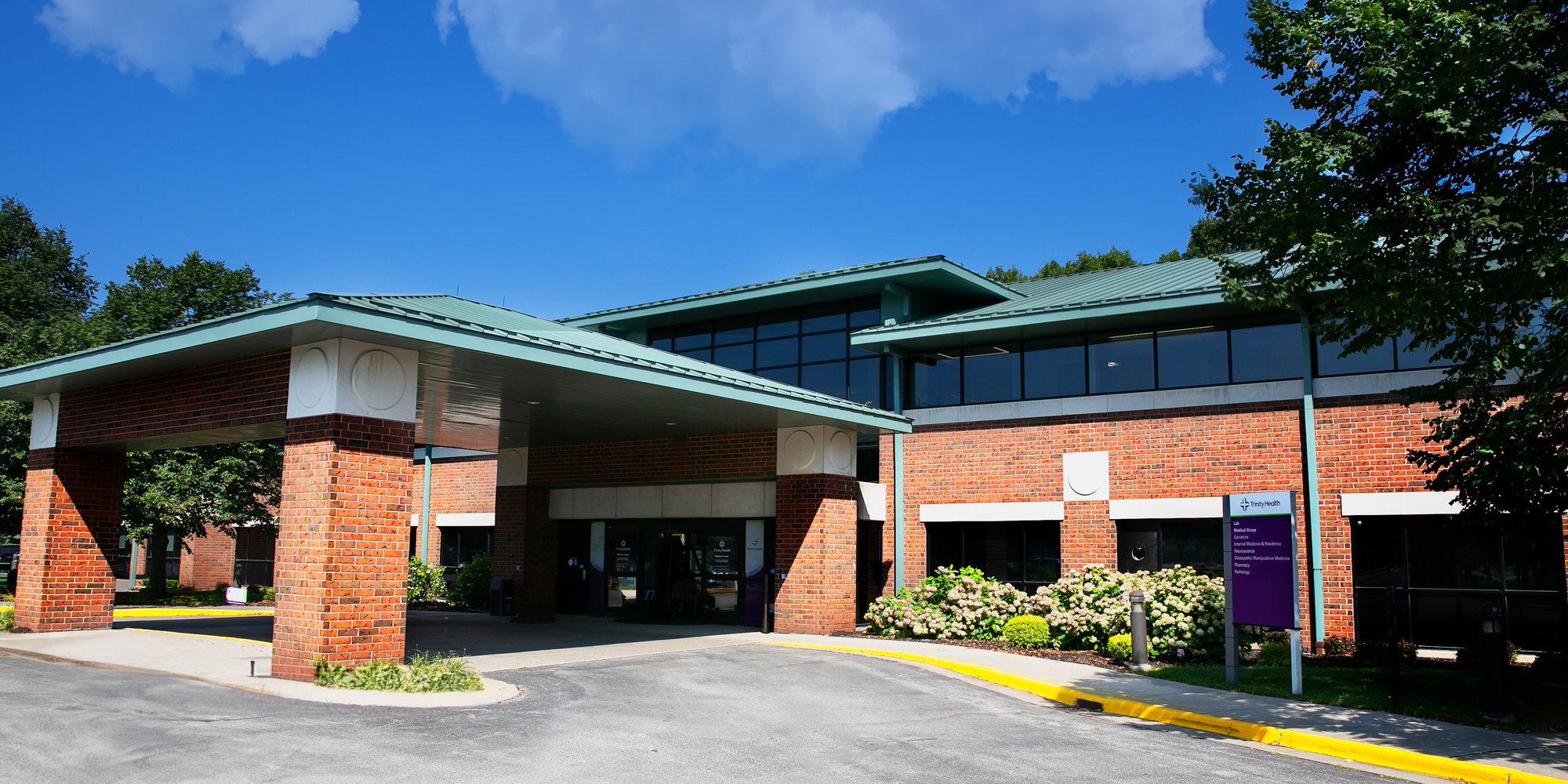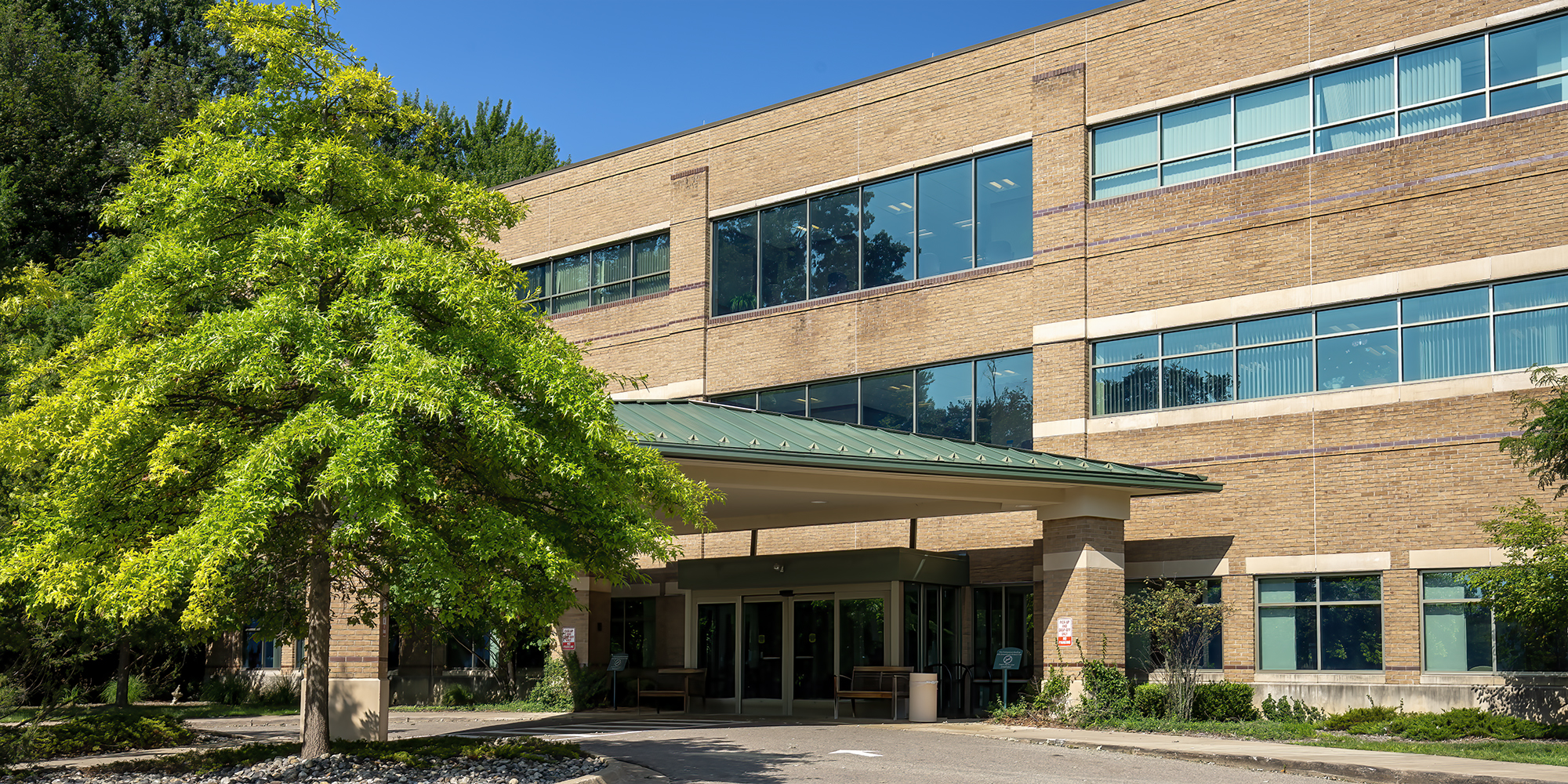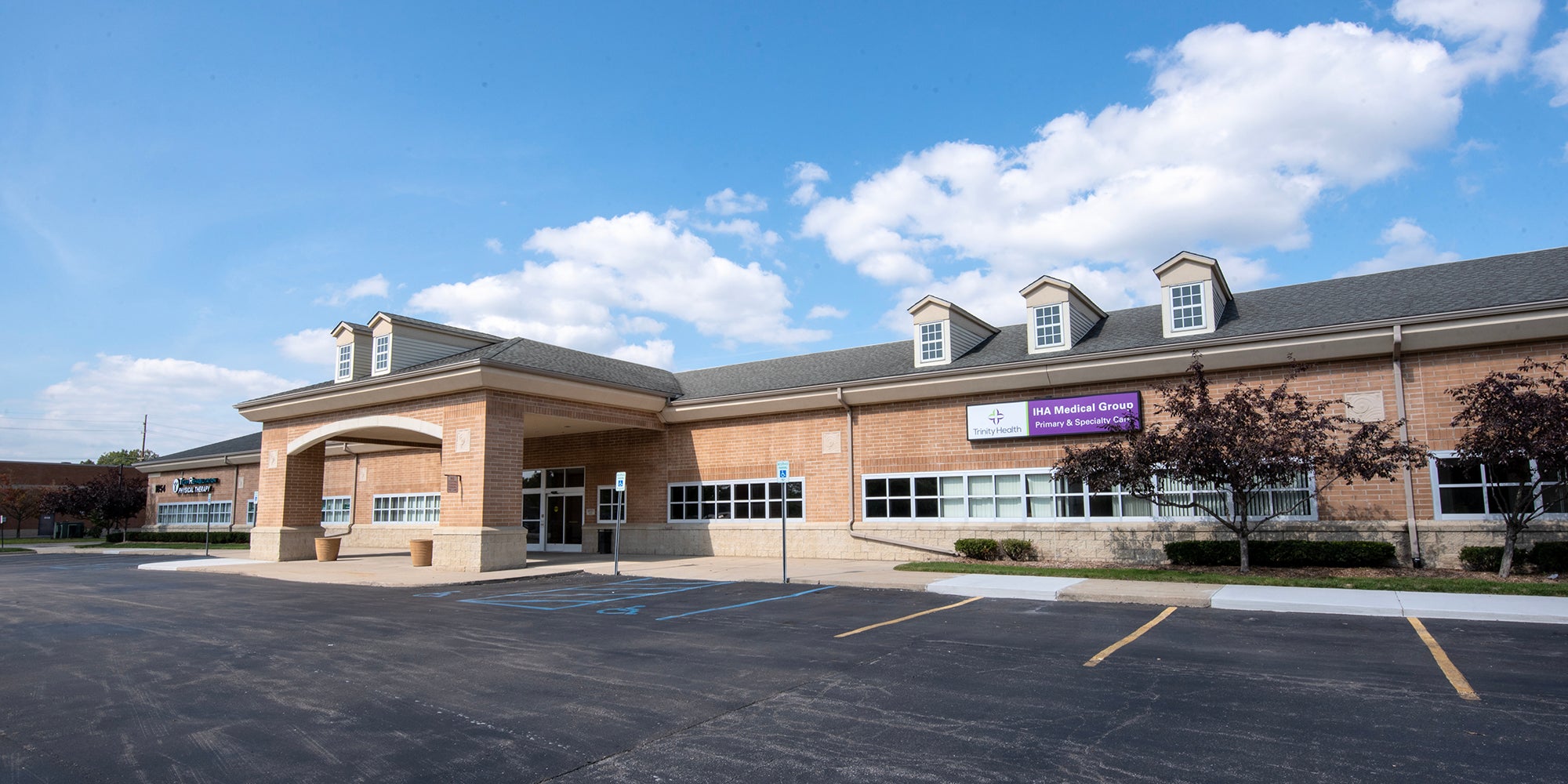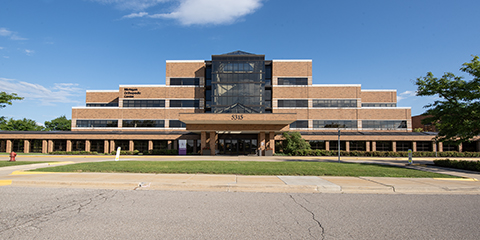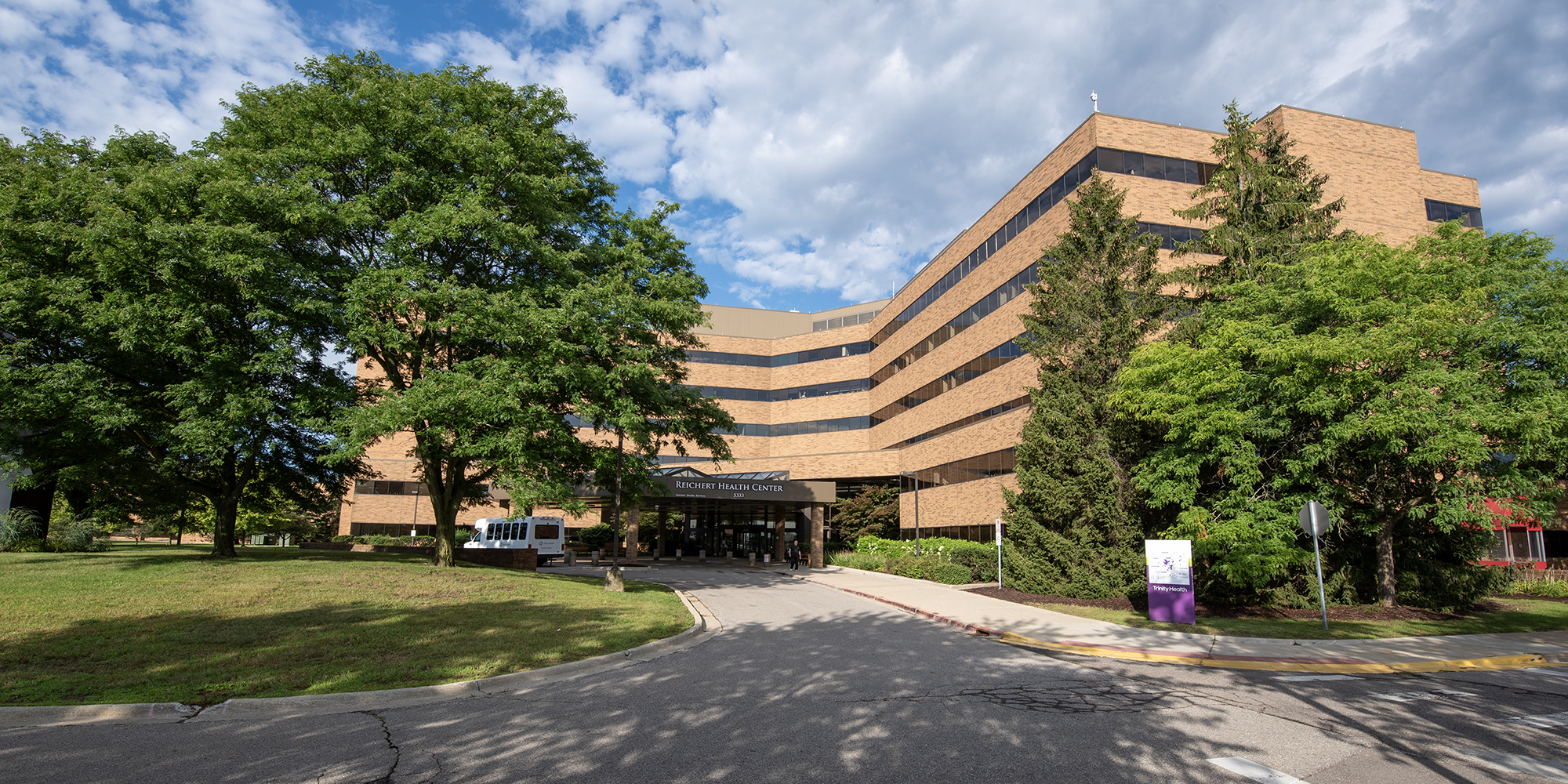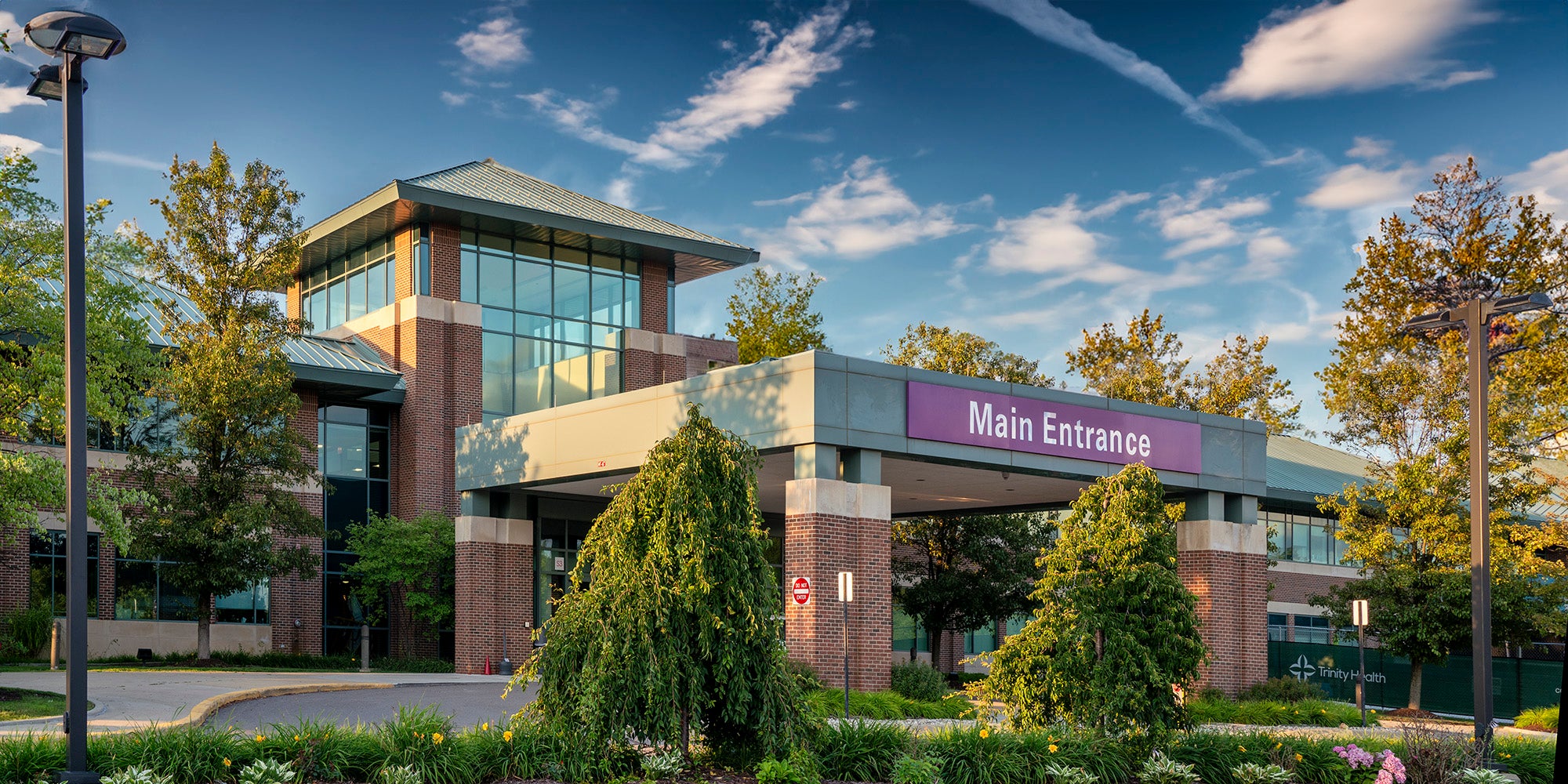Neurosurgery
Trinity Health Michigan is a trusted name in neurosurgery. We use leading techniques to treat advanced brain, nerve and spine conditions. Our neurosurgeons are among some of the most trusted experts in the Midwest. We deliver comprehensive, compassionate care for nearly any diagnosis.
Some of our experts have advanced training through fellowships in areas such as complex spine and cerebrovascular disease. Many have decades of experience and perform a high volume of neurosurgical procedures. These attributes help us consistently achieve excellent results — even for rare and complicated conditions.

Experiencing Back or Neck Pain?
We’ve got your back. Request an appointment with our Spine and Back experts to learn what treatment options are available to you.
Request an AppointmentOur Locations
Neurosurgery at Trinity Health Michigan: Why Choose Us?
Neurosurgeons are part of a large team of experts that often includes neurologists, therapists, physical medicine doctors and other specialists. We pride ourselves on delivering appropriate care, which is why we usually start with nonsurgical therapies. But when surgery is the best option, we work quickly to plan the procedure that’s right for your needs.
Our comprehensive approach means you receive extra attention and benefit from a seamless care experience. In some cases, nurse navigators coordinate your care. Many people benefit from specialized therapies (neurorehabilitation) to optimize functioning after surgery. All patients have access to specialized services and support to make life a little easier during recovery.
Neurosurgical Procedures We Offer
Trinity Health Michigan delivers neurosurgical services for a broad range of conditions, including:
Back and Spine Issues
Trinity Health Michigan is among a few programs in the state whose neurosurgeons have advanced training in complex spine care. This expertise helps us deliver safe, precise therapies during routine and advanced procedures.
We often treat back pain with smaller incisions that cause less disruption to healthy tissue. Patients are typically on their feet and moving within hours of surgery and resume regular activities within days. Our commitment to spine surgery excellence helps us maintain national recognition.
Spine surgery also includes care for deformities, such as scoliosis, trauma treatment and tumor removal. We use leading techniques that ensure the highest level of precision, including robotic-assisted surgery. Find out more about our back and spine services.
Epilepsy
Robotic-assisted Stereoelectroencephalography (SEEG) is a minimally invasive surgical procedure used to identify deep areas in your brain where difficult-to-treat epileptic seizures. We most often use SEEG to determine if patients with drug-resistant (refractory) focal epilepsy are eligible for surgery. Our epileptologists may also use SEEG before you have brain surgery to map important brain areas (language, sensory, visual, and memory) that need to be protected during surgery.
Epilepsy surgery may include:
- Laser interstitial thermal therapy: Using MRI brain scans to guide a small laser probe to Disrupts abnormal electrical pathways in the brain by creating scar tissue in specific areas
- Deep brain stimulation: Uses an implantable device to regulate electrical activity in specific areas of the brain
- Resection: Removes abnormal tissue (tumors, infections and malformations) responsible for seizure activity
- Responsive nerve stimulation: Implants a device in the brain that detects and then sends electrical signals to block or disrupt seizure activity at its source.
- Temporal lobe resection: Removes a section of tissue from the area of the brain where many seizure types start
- Vagus nerve stimulation: Uses an implantable device to send regular electrical impulses to the brain via the vagus nerve
Facial Pain (Trigeminal Neuralgia)
Trigeminal neuralgia is a rare condition causing electric shock-like facial pain that can stop you in your tracks. It’s due to blood vessels pressing on the trigeminal nerve. Surgical treatment involves a delicate procedure to remove or relocate certain blood vessels. Our neurosurgeons’ knowing hands and tender touch help many people get the relief they need.
Get more information about how we treat headaches.
Sleep Disorders
For people with sleep apnea who cannot tolerate a breathing machine (CPAP or BiPAP), a neurosurgical procedure may help. Eligible patients undergo hypoglossal nerve stimulation, which involves an implantable device that prevents the tongue from blocking the airway. This treatment, also known as the Inspire® Upper Airway Stimulation device, lowers the risk of breathing pauses while sleeping.
Learn more about sleep disorders.
Stroke and Cerebrovascular Disease
Our nationally recognized stroke programs deliver lifesaving care using the best available techniques. We also prevent stroke by detecting and treating cerebrovascular conditions, like aneurysms, that limit blood flow to the brain. Explore stroke and cerebrovascular disease care.
Trinity Health Michigan is home to fellowship-trained neurointerventional radiologists who deliver therapies using tiny incisions and sophisticated technologies. The team also includes trusted neurosurgeons who use traditional open surgical techniques.
We offer nearly any therapy you may need, including:
- Clipping: Prevents blood from entering balloon-like pockets of blood vessel tissue by using a tiny clip to seal them
- Coiling: Treats aneurysms by packing them with coils of a thread-like substance
- Embolization: Injects a substance to close off blood vessels that feed small brain bleeds and malformations
- Stents and flow diverter devices: Strengthen weak spots in blood vessel walls using a device to reinforce them
- Thrombectomy: Restores blood flow to the brain in people who had a stroke that doesn’t respond to clot-busting drugs





